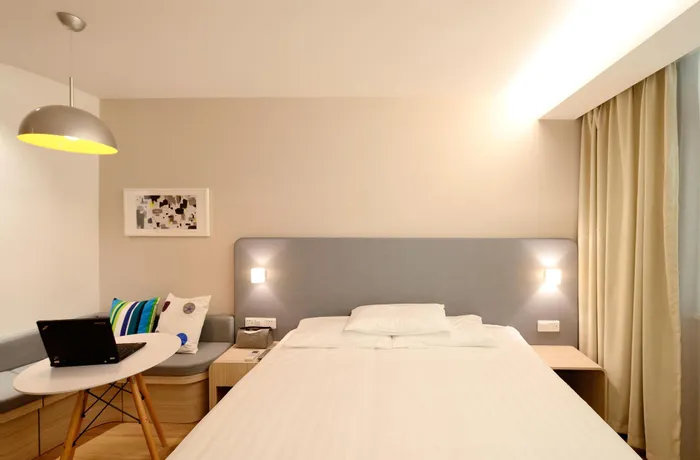Beige is out, bold is in: Luxury travellers snub the copy-paste hotel look

Today’s corporate travellers are rejecting the neutral hotel room with generic art and zero personality. According to the Luxury Travel Report 2025, nearly 70% of premium travellers say hotels have “lost their soul,” and over 73% refuse to pay for ‘generic luxury’ any longer.
Image: Supplied
The Luxury Travel Report 2025 has unveiled a notable shift in traveller preferences, revealing that holidaymakers are increasingly rejecting what is termed "beigeification"—the unnerving sameness that has pervaded hotels globally.
Stepping into hotel rooms across the globe, from Bangkok to Birmingham, one may encounter a strikingly uniform aesthetic characterised by neutral colours, predictable artwork, and standardised amenities.
While this homogeneity once promised reliability, today’s luxury travellers crave vibrant, unique environments that reflect character and context.
According to the report, about 70% of premium travellers feel that modern hotels have "lost their soul," and nearly three-quarters express they are unwilling to pay for what they describe as "generic luxury."
With plans to embark on eight leisure trips in 2025, these discerning guests are ready to spend significantly—but only on accommodations that offer something beyond cut-and-paste uniformity.
This evolution in travel preferences is not confined to leisure; it also offers critical insights for corporate travel programmes.
Herman Heunes, General Manager at corporate travel company, FCM, asserts that business travel should be a rewarding opportunity—a moment to connect, grow, and recharge.
"Strip away all personality and sense of place from where people stay, and the experience loses meaning," he states.
Supporting this sentiment, research published in the International Journal of Hospitality Management indicates that hotel aesthetics directly impact guest satisfaction and emotional responses.
The findings suggest that design elements of a room account for over 10% of what guests value most during their stay.
For frequent business travellers—dubbed 'road warriors'—the environment in which they rest can significantly influence their performance.
According to the study, lifestyle hotels that merge business and leisure by providing distinctive character alongside high-end lodging meet modern corporate travel needs effectively.
Historically, corporate hotel programmes have prioritised consistency and cost, but as the report suggests, there is a pressing need for companies to move past generic interiors. The objective is not to discard practicality but to enrich it with purpose.
Heunes notes that companies can revamp their hotel strategies by including properties that balance reliable service with distinctiveness. "Ask your frequent travellers which environments help them feel most productive," he advises.
Innovative hotels are already setting new standards by creatively interpreting their surroundings. The Detroit Foundation Hotel, for instance, has transformed a historic 1929 firehouse into a vibrant creative hub, while New York's Ace Hotel features local artists in its cultural programming, ensuring guests enjoy an immersive experience.
In Bangkok, the Waldorf Astoria integrates traditional Thai design with bronze screens and layered textures, creating a unique sense of place.
These examples highlight the potential for spaces that resonate with guests, shifting an ordinary stay into an unforgettable experience.
As Heunes emphasises, travel managers have a prime opportunity to refresh corporate travel programmes intentionally. Companies should not wait for travellers to demand change, but should proactively redesign their lodging strategies, balancing cost control with quality experiences.
With younger generations entering the workforce, expectations are shifting towards more meaningful experiences in corporate travel.
"The best business trips do more than tick boxes," Heunes concludes. "They leave people better off than when they left. That’s what thoughtful travel looks like."
IOL
Related Topics: